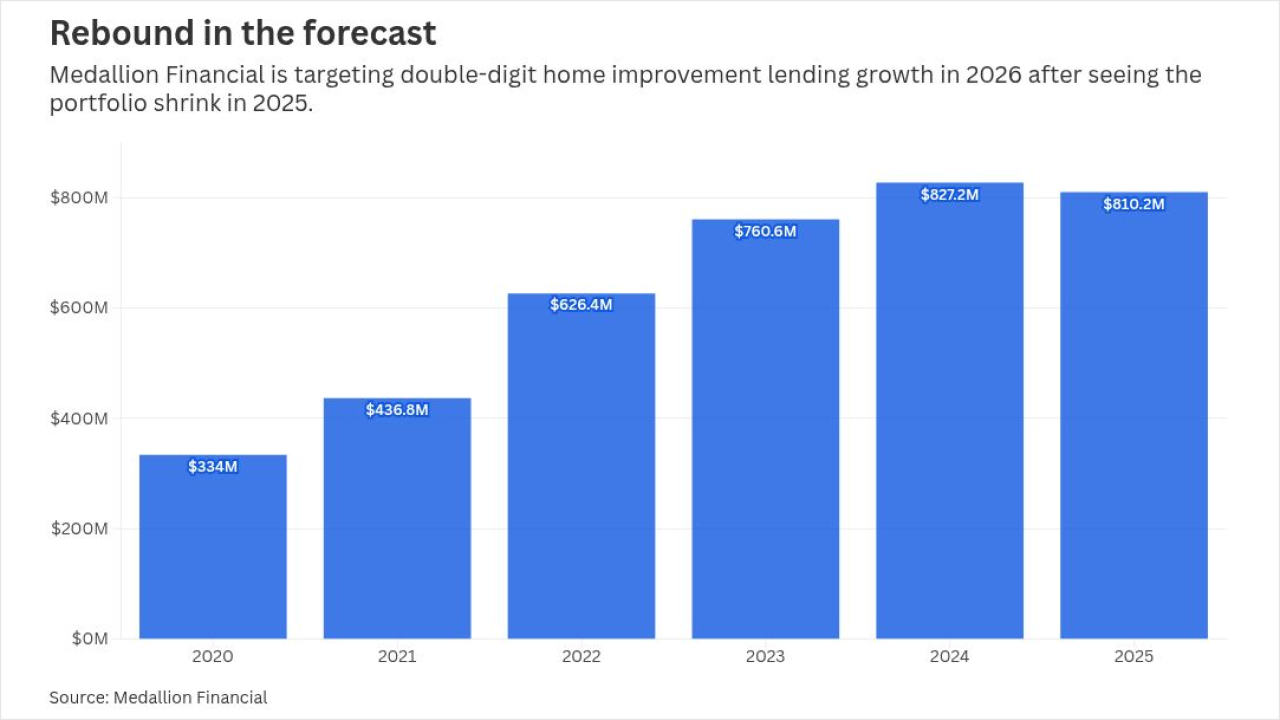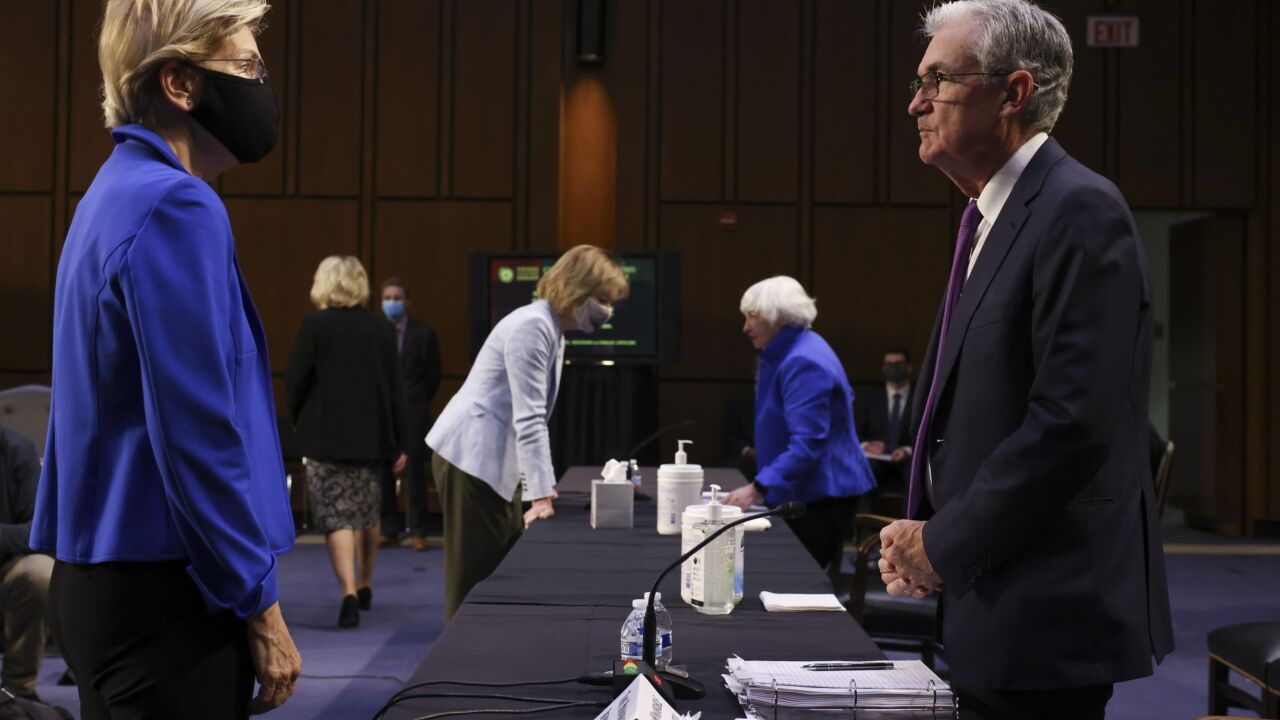Robert P. Bordogna, chief executive officer of Todd Investment Advisors Inc. in Louisville, Ky., has a pretty good idea what he will do with his 490,000 Wachovia Corp. shares should the company proceed with selling itself to First Union Corp.
Sell.
A longtime Wachovia shareholder, both for his own account and on behalf of high-net-worth clients, Mr. Bordogna says he simply does not buy the companys argument that it is a better fit with First Union than it would be with the rival bidder SunTrust Banks Inc. Moreover, he said, Wachovia should stay independent if it cannot work out an amicable merger with SunTrust.
I intend to vote with my proxy. I intend to vote for SunTrust, he said. I am not going to hold First Union.
As Wachovias chairman, L.M. Bud Baker, made the rounds of Wall Street analysts last week trying to drum up support for the friendly deal he struck with First Union in April, (see Preferred Issues column on page 9) Wachovias own investors were picking sides. Its board of directors has already voted for First Union as winner of the bidding war, but SunTrust has vowed to take its case directly to Wachovia shareholders, some of whom said in interviews last week that the board should take another look at the competing offers.
Other institutional shareholders contacted said they were ambivalent about the dueling bids, and a minority said they backed the deal with First Union. Clearly, Mr. Bakers efforts to sell the deal are needed.
Shareholders who side with SunTrust said they are skeptical about claims by Wachovia and First Union that the two are more compatible. They pointed to First Unions recent track record a string of expensive deals, botched merger integrations, and asset-quality problems as reason enough to steer clear of a combination.
Those who side with First Union, however, pointed to the Charlotte, N.C., companys long history of merger activity compared with the relative inexperience of Atlantas SunTrust. They said SunTrust has not been so perfect itself, having fouled up the integration of Crestar Financial Corp. two years ago.
Barry Koling, a spokesman for SunTrust, said the support for his companys bid is consistent with the kind of feedback weve gotten from day one. Though he could not specify just how many communications SunTrust had received, he described it as strong anecdotal evidence of support from Wachovias rank and file employees and shareholders.
Mr. Koling said that SunTrusts answer to them has been, Dont tell us, tell Wachovia.
Carl Sargent, an asset manager at Boston-based Choate Hall & Stewart, which holds 86,335 shares, said Wachovia did not give SunTrust a fair shake. We think they should have taken another look, he said. SunTrust might have been a better fit than First Union.
SunTrusts offer calls for an exchange of 1.081 of its shares for each share of Wachovia, a deal initially valued at $14.7 billion. First Unions deal, which called for an exchange of two of its shares for each share of Wachovia, was originally valued at $13.4 billion. The SunTrust bids premium, however, has been whittled to less than 5% as its stock price has fallen and First Unions has risen.
Still, Jim Poats, an asset manager at Pettyjohn Co. in Lynchburg, Va., which holds 86,919 Wachovia shares, backed SunTrusts bid. It simply offers more dollars up-front for shareholders, he said.
We would like the firm management to entertain all offers, said Van Ogden, a portfolio manager at Dallas-based Penn Davis McFarland Inc., which owns more than 110,000 shares of Wachovia stock. Available information on the merger possibilities makes it sound like [Wachovia] management is not acting to maximize value for shareholders, he said.
Wachovia rebuts that view. Wachovias board thoroughly examined the SunTrust bid with its financial and legal advisers, and we think that when shareholders review all of the data, they will agree with the boards decision that Wachovias proposed merger of equals with First Union is a superior deal, said Jason E. Reed, a Wachovia spokesman.
Mary Eshet, a spokeswoman for First Union, added: Were confident that when the shareholders focus on the most important factor, which is the potential for growth and shareholder value, and clearly review the facts, the economics and the strategic and cultural fit, they will come to the same conclusion as the Wachovia board did: that a merger with First Union is clearly the best deal for Wachovia shareholders.
First Union and Wachovia have said they would like the shareholders to vote on the deal in August, leaving plenty of time for all sides to state their cases.
The votes of some major shareholders may be forgone conclusions. Mr. Baker, for example, owns 498,645 shares, according to regulatory filings, and certainly would vote them for the First Union deal he has been pitching so ardently. He owns the biggest stake of any Wachovia board member.
The boards second-largest stakeholder, Morris W. Offit, has 489,201 shares. Mr. Offit, chairman of OffitBank Holdings Inc., a New York banking company he sold to Wachovia in 1999, was the sole dissenter at last Tuesdays board meeting, voting against rejecting the SunTrust offer.
Though he would not comment on the matter and Mr. Baker described the vote as a private matter in an interview with American Banker last week Mr. Offits dissent seemed to bolster SunTrusts argument that the First Union-Wachovia deal is far from a fait accompli.
Wachovias 13 remaining outside board members collectively hold 128,956 shares, fewer than 10,000 apiece.
Benefits to key Wachovia executives were one aspect of the First Union deal that rankled some Wachovia shareholders. Mr. Baker, for example, was to have gotten $2 million annually for life once he retired. Perhaps bowing to the displeasure this stimulated, Mr. Baker has since agreed to forgo $500,000 of that annual retirement benefit. The move was not enough to placate everyone, however.
Its been on our recommended list for many years as a quality and conservative name, Choate Halls Mr. Sargent said of Wachovia. But were a little disappointed with their recent actions.
Other shareholders said, though, that First Unions stock has far more upside potential than that of SunTrust. This, in fact, has been one of Wachovias selling points.
If thats the logic, its a much better deal to go with First Union, in my opinion, said John Thompson, president of Thompson Plumb & Associates in Madison, Wis. He sold a significant chunk of his 76,300 Wachovia shares (he says he does not remember the exact amount) after the Easter weekend First Union accord was announced and used the proceeds to buy First Union stock. He also owns SunTrust shares.
Thats the attractive reason to go with the First Union offer, Mr. Thompson said. There is a lot of upside.
Experience is another topic of debate among institutional shareholders.
Jeff Schappe, vice president of investment research for Citizens Advisers Inc. in Portsmouth, N.H., which holds 35,327 Wachovia shares, said SunTrust may be offering Wachovia a better deal in terms of price but only enough to cover the risk Wachovia would be taking with an inexperienced acquirer.
SunTrust is not a skilled acquirer, Mr. Schappe said. There is a science, an art, and a methodology to it that they dont have, but First Union has a track record they can point to and a new management.
He added that the hostile nature of SunTrusts bid is important. People tend to get nervous over a hostile takeover, he said. Its hard to make them work when you have unhappy people.
That there was any deal at all still puzzles others.
William F. Shumadine Jr., a managing director at Richmond, Va.-based Lowe, Brockenbrough & Co. Inc., and former president of Central Fidelity Banks Inc., which Wachovia bought in 1997, said, I still wonder why Wachovia feels the need to partner with another bank to begin with.
Wachovia had one of the industrys strongest credit cultures, but over the past three years, credit quality has slipped, and earnings have suffered as a result, he said. That said, Mr. Shumadine said he wonders whether there is something hidden in Wachovias numbers. Adding $450 million of loan-loss reserves indicates the credit problems could be beyond those known publicly, he said.
If the lack of a deal with SunTrust were over areas that theyve publicly announced wealth management, business plans those reasons could have been reconciled, he said.
On the credit issue Wachovias spokesman said, Wachovia has dealt with credit issues and has communicated that fully with shareholders, and the planned merger with First Union is an opportunity for us to create an incredible financial services franchise.
Barbara A. Rehm, Niamh Ring, Laura Thompson, and Alissa Leibowitz contributed to this story. 





